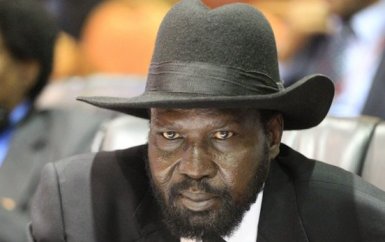S. Sudan president signs broadcast bill into law
September 8, 2014 (JUBA) – South Sudan’s president, Salva Kiir, has finally signed into law the broadcast bill, ending the long wait after it was amended by the country’s lawmakers.

Under the new law, all broadcasting stations will be required to meet set requirements in order to obtain mandatory accreditation from the government appointed commission.
Working without accreditation, the law says, could attract fines or imprisonment.
Observers and analysts also wondered why the head of the media commission was to be appointed by the president on recommendation from the information minister and not parliament.
There have also been several calls by media practitioners for the independence of the yet to be established media commission.
MEDIA WARNED
Meanwhile, the country’s information minister, Michael Makuei Lueth warned the media against “stepping on toes” of others, including the government, saying failure to comply would attract backlash.
“You must be careful with your words. Use appropriate information and disseminate correctly. There is a need to know about the duties and rights. It is your duty to exercise your work according to the law but you must not cross line. Don’t step on the toes of others, including the government,” Lueth said on Sunday.
The minister made these remarks during a meeting organised by government, focusing on media roles in nation-building processes.
“If you cross the line there will be no way not to take you to face the law. Give the most accurate information. Don’t add your own,” the minister said.
“We are not against the freedom of expression but we want you to report rightly”, he added.
According to Article 24 of South Sudan Transitional Constitution, “Every citizen shall have the right to the freedom of expression, reception and dissemination of information, publication, and access to the press without prejudice to public order, safety or morals as prescribed by law”.
Section II of same article, however, says, “All levels of government shall guarantee the freedom of the press and other media as shall be regulated by law in a democratic society”.
South Sudan ranked 124 out of 148 countries, sliding 12 places from its previous ranking, Reporters Without Borders said early this year.
(ST)
